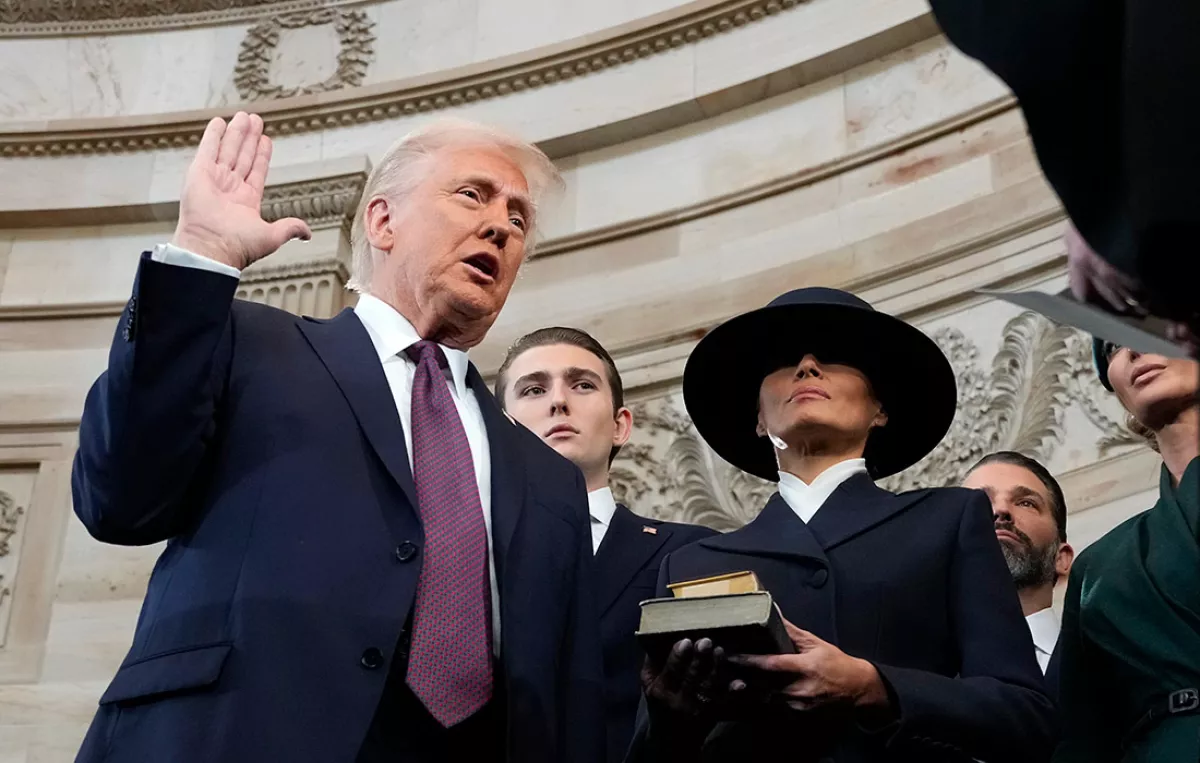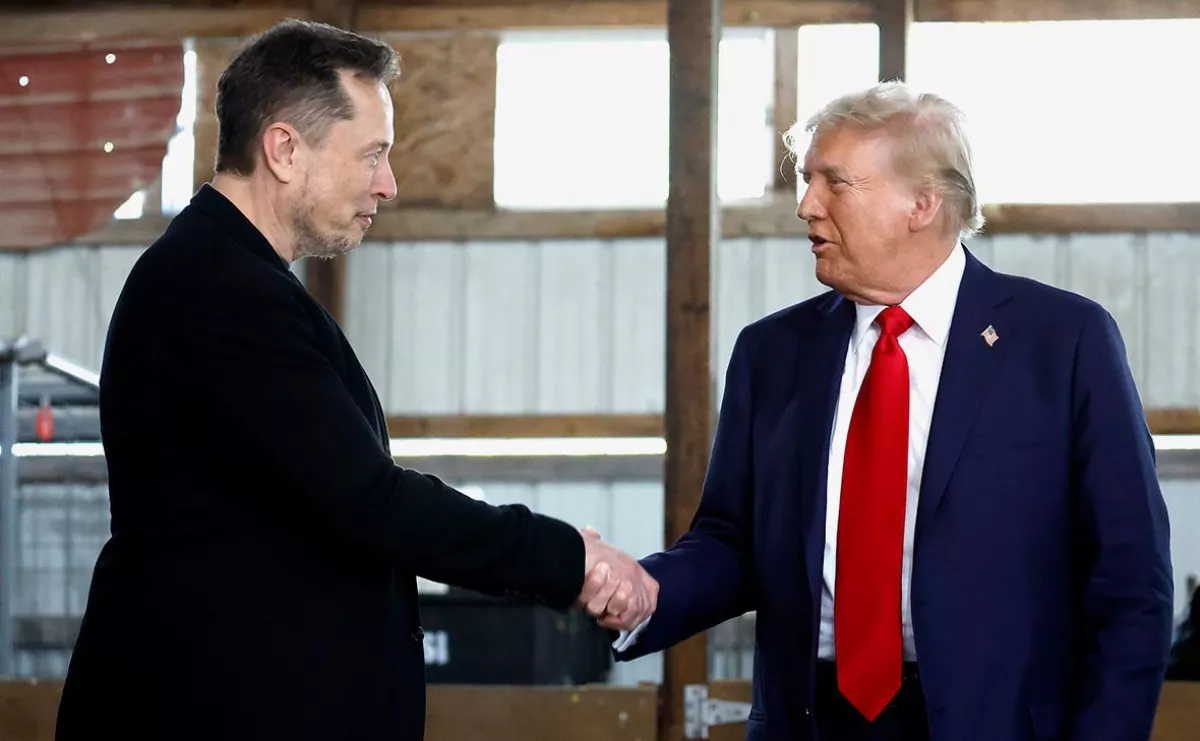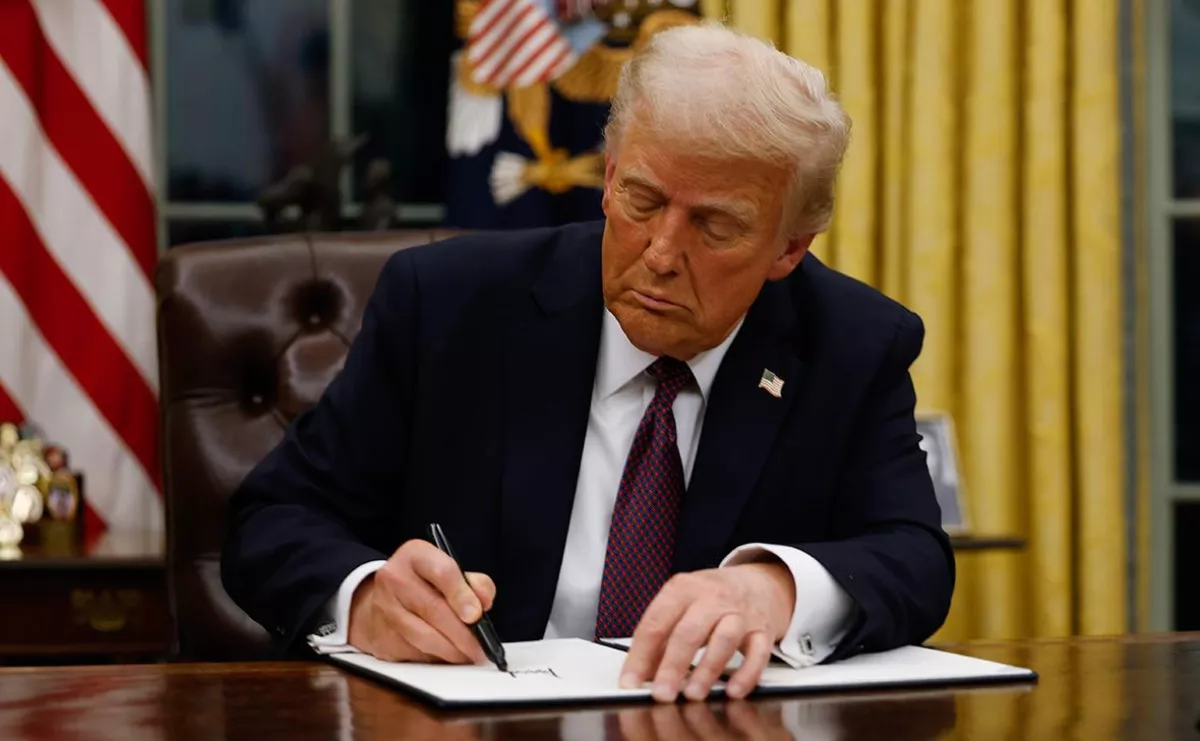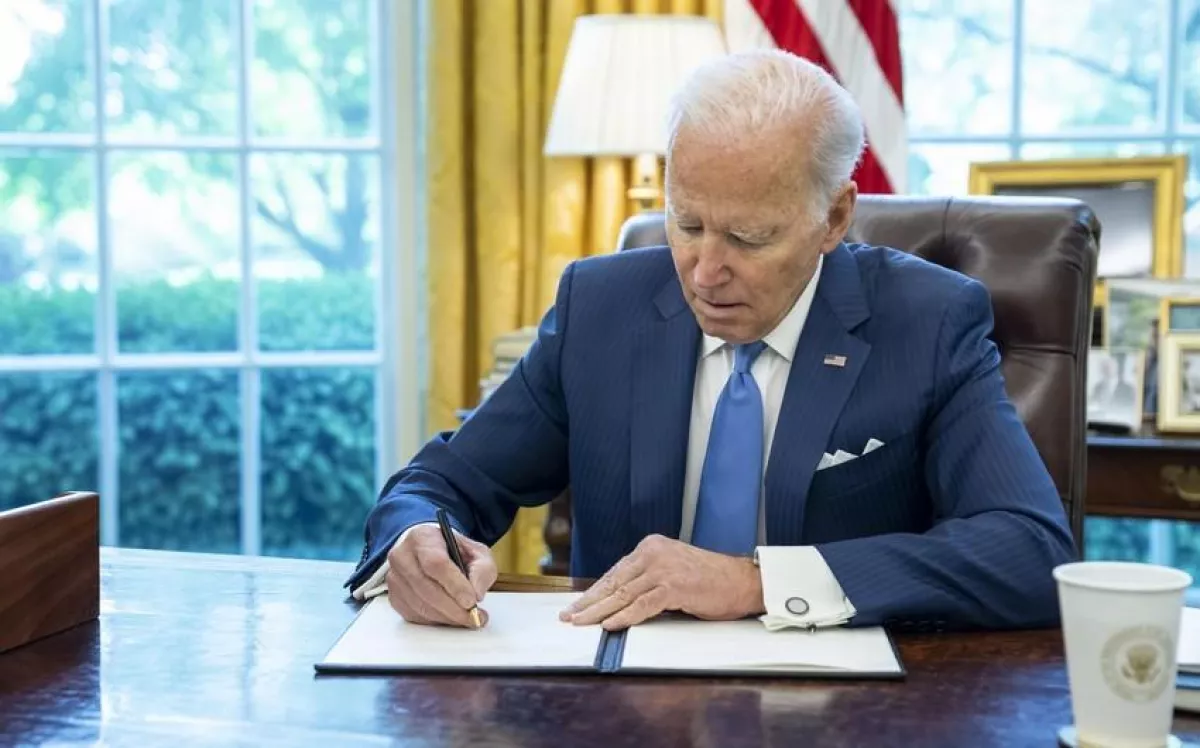Trump declares war on "deep state" Old and new borders of America
So, it happened—January 20th arrived, and Donald Trump assumed the presidency of the United States. His inaugural speech was impassioned, and we will return to its content shortly. But the ceremony itself was no less striking—fresh, eloquent, and full of life. Everything about the event reflected a deep yearning among Americans for something genuine and authentic. And finally, it had arrived—more precisely, it had come again.
The faces of the guests, the grand hall hosting the ceremony, and even the televised broadcast all carried an air of messianic fervour. Though this may not be a new analogy, I can’t help but say: Trump’s return is, in many ways, subconsciously perceived by Americans as a kind of second coming of Christ. In those moments, the Capitol transformed into a "shining city on a hill," embodying the sacred symbol of America’s mission.
It’s no surprise that Trump began his speech with a brilliant phrase in which elegance was combined with assertiveness, seriousness with irony, and religious solemnity with Broadway-style expressiveness: "Vice President Vance, Speaker Johnson, Senator Thune, Chief Justice Roberts, justices of the Supreme Court of the United States, President Clinton, President Bush, President Obama, President Biden, Vice President Harris, and my fellow citizens, the golden age of America begins right now."
Throughout his speech, Trump frequently invoked religious themes. However, not in terms of love for one’s neighbour, but in the context of America as a chosen nation, which is very much in line with American Protestant doctrine. Although Trump spoke mostly about domestic issues, in a number of statements, he was quick to assure everyone that the nation's chosen trajectory would also be directed outward. “We will be a nation like no other, full of compassion, courage, and exceptionalism. Our power will stop all wars and bring a new spirit of unity to a world that has been angry, violent, and totally unpredictable,” he said, conveying one of the key messages regarding foreign policy.
Here’s another one: “The United States will once again consider itself a growing nation — one that increases our wealth, expands our territory, builds our cities, raises our expectations, and carries our flag into new and beautiful horizons.”

As we can see, his rhetoric is far from isolationist. While some experts interpret "territorial expansion" in the context of colonizing Mars, we must also keep in mind Trump’s previous statements about Greenland and Canada, which he tactfully avoided repeating this time. However, the ceremony was notable for the absence of high-ranking guests from communities related to those issues. Instead, Trump once again brought up the Panama Canal, stating that it was under China’s control, but "we’re taking it back," even though China’s Vice Premier Han Zheng was present in the hall. Finally, the newly sworn-in president reiterated his promise to rename the Gulf of Mexico to the American Gulf.
Interestingly, Trump didn’t say much about Middle Eastern affairs, only mentioning the "hostage deal" in passing. Yet, his actions in this area speak louder than words. No mention was made of Ukraine, which could indirectly suggest that either he doesn’t view this issue as strategic, or he wants to leave room for negotiations with Putin.
As for domestic affairs, Trump also made a number of bold statements. He began his speech with a barrage of accusations against the previous administration, but not only that: “For many years, a radical and corrupt establishment has extracted power and wealth from our citizens while the pillars of our society lay broken and seemingly in complete disrepair.” It’s clear that this speech wasn’t only aimed at Biden’s administration, but also at the "deep state," which he declared himself to be at war with and which prevented him from realizing his goals during his first term.
One of Trump’s main targets was illegal immigration, which he declared war on. He announced, among other things, that he would declare a state of emergency on the southern border and even send troops there, as well as begin the process of sending millions of illegal immigrants back.
Next, Trump called for a state of emergency in the national energy sector to increase fossil fuel production, dramatically adding, “We will drill, baby, drill.” “We will bring prices down, fill our strategic reserves up again right to the top, and export American energy all over the world,” Trump proclaimed.
He also promised to put an end to the "Green New Deal" and eliminate the mandate on electric vehicles, “saving our auto industry and keeping my sacred pledge to our great American autoworkers.”
Finally, Trump promised to restore freedom of speech by ending government censorship, which likely signals his support for major social media platforms and tech companies. During the speech, leaders of information technology companies, such as Elon Musk, Mark Zuckerberg, and Jeff Bezos, sat in the same row as members of Trump’s new cabinet. As is well known, one of them, Elon Musk, will head the newly created Department of Government Efficiency.

The Trump-Musk alliance is worth discussing in more detail, as these two are shaping the very image of leaders that the American people are supposed to follow.
The Trump-Musk alliance challenges bureaucracy. From their statements and actions, it’s clear that they both despise the political class, preferring to eliminate this layer between the population and corporations. In Trump and Musk, we primarily see businessmen who no longer need the cushioning effect of professional politicians to wield influence. They’re tired of lobbyist games—they want to directly govern the States. They believe that entrenched politicians slow down the processes necessary for the nation’s progress. Just as business needs expansion, the nation needs progress—this is evident in their words. Trump skillfully tapped into the frustration of Americans with the lack of prospects for progress, which had been caused by decades of liberal order, overindulgence, and complacency unworthy of the pioneering spirit of the American nation.
“Americans are explorers, builders, innovators, entrepreneurs, and pioneers. The spirit of the frontier is written into our hearts. The call of the next great adventure resounds from within our souls,” Trump declared during the inauguration.
It’s important to note that the concept of the frontier originally referred to the boundary of American settlements during the early decades of the nation’s history. This boundary steadily moved westward as pioneers ventured into new territories. In 1893, historian and University of Wisconsin professor Frederick Turner, in his lecture The Significance of the Frontier in American History, argued that American society—along with key traits like democracy, individualism, and American exceptionalism—was primarily shaped by the open spaces of the Wild West, the frontier conditions, and the constant westward movement of European settlers. Despite later, intense debates about the theory and its eventual recognition as unscientific, it became, due to its romantic fervour, a myth—one that has since become a cornerstone of the American collective unconscious and a powerful archetype.
This myth, in turn, spurred efforts to revive the romanticisation of space. As Trump declared during his inaugural speech, “And we will pursue our manifest destiny into the stars, launching American astronauts to plant the Stars and Stripes on the planet Mars.” Mars represents the new frontier for the American nation in Trump and Musk’s vision.
In this sense, the alliance is clearly trying to prove that America is a nation of the modern era. They are trying to return to a modernity focused on an active future, bidding farewell to post- and meta-modernity, which has ensnared Western society in webs of irony and contemplation. In short, Americans, at least in the minds of Trump and Musk, want to go back to the future, to the stars. Men and women. Yes, men and women. Trump promised to put an end to the diversity programs promoted by previous administrations and stated that the official policy of the U.S. would recognize only two genders: male and female. Checkmate.

After the inauguration ceremony, Trump immediately got to work. Sitting at a table on stage at the Capital One Arena, he signed a series of high-profile executive orders with an exaggerated large signature and a pen that resembled a marker. Among these was an order to withdraw from the Paris Climate Agreement. He then returned to the White House, where the signing of executive orders continued. He pardoned nearly all 1,600 individuals arrested during the Capitol riots on January 6, 2021, temporarily lifted the TikTok ban, and formalized the U.S. withdrawal from the World Health Organization. And yes, among the signed documents was also the order to rename the Gulf of Mexico to the American Gulf.
Particularly noteworthy is Trump's executive order titled "Ending Weaponization of the Federal Government," which begins with ominous notes for the outgoing Biden administration: "The American people have witnessed the previous administration engage in a systematic campaign against its perceived political opponents, weaponizing the legal force of numerous Federal law enforcement agencies and the Intelligence Community…" The next words from the document sound even more threatening: "Therefore, this order sets forth a process to ensure accountability for the previous administration’s weaponization of the Federal Government against the American people."

Against the backdrop of these accusations, Biden's use of presidential power for the pardon of his son Hunter in December last year seems like a trivial act. This pardon also extended to his brother James, his wife Sarah, his sister Valerie, her husband John T. Owens, and another brother, Francis, in the final hours of his term. Such preemptive pardons suggest Biden's fear of potential reprisals against his family, both for personal and political reasons. Could it be that Biden, for the same reasons, targeted Trump with his own form of persecution? As the saying goes, "the thief's hat is on fire."
It seems that a major showdown is beginning. It can be stated that the first step in the battle against the "deep state" has been taken. Trump is certainly not lacking in determination and courage. One can hope that these qualities will not only benefit America but the entire world, weary of liberal hypocrisy. However, time will be needed to understand what can actually be turned into action from his declarations and what will genuinely bring benefit. Trump appears to be a man with answers to all questions. Yet, the questions keep arising. Among them are: How resilient is American passion? How tolerant is it of other cultures? How strong is the resistance of American bureaucracy? How will Trump manage to rid himself of bureaucratic influence, and will it not bring his lofty plans crashing down from Mars to Earth?








